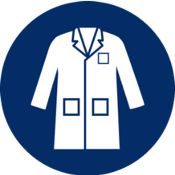Our goal is to cultivate the highest quality, most inclusive learning environment for our medical students and residents. Students need to be prepared with the knowledge and skills to combat the social inequities that influence patient’s health. Differences Matter’s Education Action Group addressed this need by creating the most comprehensive, integrated and impactful medical education curriculum that includes issues of health care disparities and social justice using a firm understanding of race, racism, bias and privilege.
 Anti-Racism Primer and Toolkit for Medical Educators
Anti-Racism Primer and Toolkit for Medical Educators
Download
In this primer and toolkit, we seek to provide a structured approach to equip new and existing faculty with tools to engage learners in topics of health disparities, social justice, bias, and racism in the classroom and clinical environment. This Primer and Toolkit is a starting point for deeper, ongoing work of anti-racism in medical education and can be used by:
- Pre-clinical medical educators, especially those leading small groups and developing teaching or testing materials
- Curriculum content creators
- Invited speakers
- Any medical educator, in any setting, working with any level of medical learner who needs or wants to have a deeper understanding of race and racism
Anti-Racism for Medical Educators Checklist:
This one-page accompanying checklist was distilled from the longer guide in the Primer and Toolkit in order to assist educators in reviewing their curriculum. Download the checklist.
Survey to Evaluate Toolkit/Primer and Checklist:
The Antiracism Primer and Toolkit, as well as the accompanying Checklist, are all intended to be "living documents", undergoing regular revisions. If you have read the materials, used them as a tool to critically evaluate your educational materials, or have any feedback to share, please take 5-10 minutes to fill out the survey.
 Differences Matter Education Advisory Committee:
Differences Matter Education Advisory Committee:
The Education Advisory Committee is a diverse group of committed educators with expertise in anti-racism that are available to assist and provide feedback in any form of curriculum that mentions racism, race and racial/ethnic health disparities. The committee meets from 12:30-2pm the third Wednesday of each month. Contact the team for instructions on how to submit curricula for feedback and meeting location.
![]() UCSF SOM Bridges Curriculum and Health Equity Content:
UCSF SOM Bridges Curriculum and Health Equity Content:
Curriculum changes have included the addition of structural competency, a framework that prepares clinical trainees to act on systemic causes of health inequalities, into the Foundational Sciences.
 Internal Medicine Clerkship Pilot Programs:
Internal Medicine Clerkship Pilot Programs:
Program to implement innovative solutions to the inequity in student experiences and evaluations by race and ethnicity during the core clerkships.
Dean’s Diversity Leaders:
Charlene Blake, MD, PhD
Assistant Professor, Anesthesia
Aisha Queen-Johnson
Administrative Program Director, PRIME
